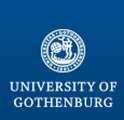University of Gothenburg
The School of Business, Economics and Law of the University of Gothenburg, where the department of Economics is located, was established 1923 and is a Faculty at the University of Gothenburg. The University has almost 6,000 employees and enrolls about 37,000 students. The School of Business, Economics and Law has about 440 employees, including 40 full professors, 56 associate professors and 14 international guest professors. The next paragraphs describe the capacity and experience of the department of economics in graduate-level education.
The Department of Economics at the School of Business, Economics and Law[1]at the University of Gothenburg (GU), which recently has been ranked as one of the top 100 departments of economics in the world, have a long-standing collaboration with universities in developing countries in general and Ethiopia in particular. In fact, the first Ethiopian PhD to graduate from GU was in 1993. Since then, 14 Ethiopians have graduated. Many of these graduates have maintained their connection with UGOT through joint research collaborations. We have had exchanges and visiting scholars both ways. In addition, we have had MSc student’s exchanges, also both ways, between ourselves and AAU, Department of Economics.
University of Gothenburg has as a mission to make the research and education more international. In this respect, the Department of Economics at UGOT is one of the leading departments when it comes to international PhD students and visiting researchers. Since the 1979, some 220 PhD’s have graduated from the department. Amongst these nearly half of them were international students, most of them from outside Europe. The Department of Economics admits new doctoral students every year. The doctoral program on average consists of about two years of course work and two years of thesis work, in total 240 higher education credits. The Sida financed PhD program in environmental economics has been running in full scale since 1997. Capacity building is the key word and the overriding objective of the PhD program is to improve welfare among poor people by preventing unsustainable use of natural resources and ecosystems in developing countries. The program has received international reputation for its high quality and steady output of well-trained environment and development economists from developing countries. So far, 30 students have graduated from the Sida-supported PhD program. The graduated PhD candidates are all working with environmental economics research and issues of economic development. Most of them (90%) have returned to their home country or region although some have done a post-doc abroad first. Besides the above-mentioned PhD program, we have also had, over the years Sida financed bilateral cooperation with several universities such as Ethiopia, Rwanda, and Tanzania.
Through financial support from Sida, we provide full scholarships to8-10 additional participants from developing countries to come to Sweden and attend courses. This has made our program very popular particularly valuable for students in programs where such specialization courses are not available, notably new domestic PhD programs in developing countries and regional PhD programs such as the ones organized by African Economic Research consortium (AERC) or Center for Environmental Economics and Policy in Africa (CEEPA). Over the past 10 years[2]the Environment for Development Network (EfD) has executed a critical first stage of long-term domestic academic capacity building. EfD is a global network of environment and development economists that supports policy-relevant research capacity building in 12 countries (Ethiopia, Kenya, Tanzania, South Africa, China, Central America, Chile, Colombia, India Vietnam, Sweden and USA).[3] In collaboration with the Environmental Economics Program, EfD has fostered the return of top scholars to academic institutions in their countries of origin, and EfD’s network continues to support these scholars’ opportunities to conduct high-quality and policy-relevant research in environment and development economics as their careers progress.
University of Gothenburg (UGOT) Website: https://www.gu.se/english

